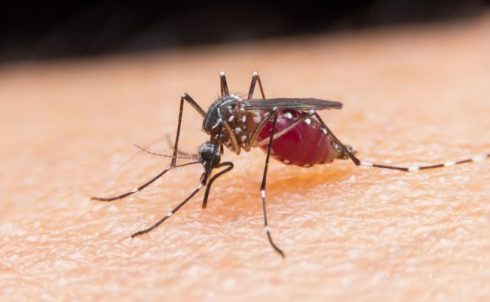PARKINSON’S disease is the fastest-growing neurological condition in the world with around 160,000 people sufferers in Spain, according to the Spanish Society of Neurology.
There is currently no cure for Parkinson’s disease and available treatments are aimed at relieving symptoms with the bulk of sufferers aged over 65.
The risks of contracting the disease are linked to age, but 5% of cases occur in people under the age of 50, which is named early-onset Parkinson’s disease.

Dr. Alvaro Sanchez Ferro from the Neurology Society says that in Spain the number of people affected will grow at a higher rate than in other countries and may triple by 2050.
He points out that age is not the only factor in contracting the condition.
“The problem is that we do not know the exact cause of its origin, although more and more evidence appears that it may be the result of a combination of environmental factors in genetically predisposed people.” he stated.
“Most of the time there is no hereditary pattern”, says Dr. Sanchez Ferro, although more and more genetic risk factors are being found.
“What has been shown is that less than 10% of cases correspond to hereditary forms and generally occur in early-onset cases.”
Some factors that seem to predispose to developing Parkinson’s are exposure to pesticides, industrial solvents or even air pollution.
There are also, according to the Spanish Society of Neurology, healthy habits that should be adopted because they can prevent or delay the development of the disease.
They say it is about physical activity, avoiding social isolation, controlling vascular risk by monitoring blood sugar levels, blood pressure or cholesterol.
Parkinson’s disease is chronic, progressive and affects, among other things, movement and balance.
The most common symptoms are tremors, slowness of movement, muscle stiffness, and instability.
There are other symptoms that are less talked about but are also very common such as loss of smell, mood swings, sleep disturbances and depression.
“In up to 30% of cases”, says Dr. Sanchez Ferro, “the first manifestation of the disease is depression and we must be aware of this when symptoms appear in people over 60 years of age without having had previous incidents.”
There is also a gender difference as the disease occurs twice as much in men as in women and the average age of onset is slightly higher among females.
In addition to medical as well as physical and occupational therapies, which are of great help to these patients and their families, others treatments also include deep brain stimulation.
This may be helpful when patients develop complications that affect movement. More recently, high-intensity ultrasound is also being used, a technique that can be useful for people that have not responded to other treatments.











